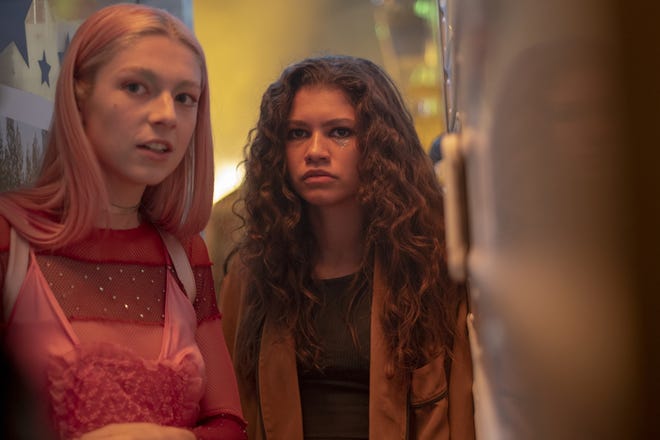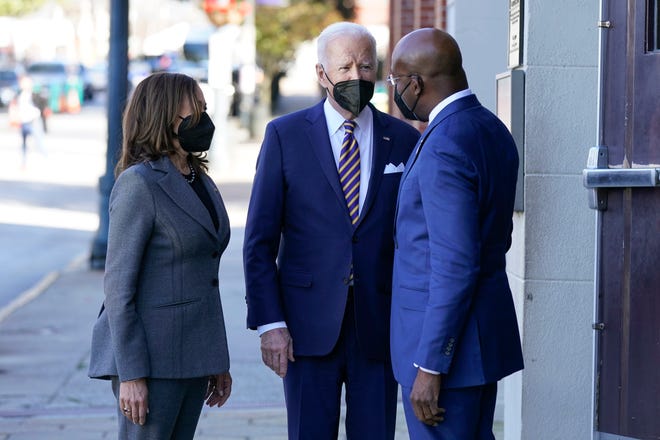
"Euphoria" has a reputation for its shocking, graphic elements.
From drugs and violence to full-frontal nudity and sex scenes, the HBO series is so chock-full of raw, unsettling scenes that viewers lament it can, at times, be hard to watch, yet they keep coming back every week.
How can content we choose to consume make us feel uneasy and simultaneously enthrall us? Experts credit shock factor, which can make us feel both disgusted and intrigued at once.
Robert Thompson, director of Syracuse University's Bleier Center for Television and Popular Culture, says Hollywood has a history of "trying to appeal to audiences by shocking them." However, a few additional factors have set HBO's first young-adult series apart, which was renewed for a third season earlier this monthFriday.
Offscreen controversies regarding the series' nudity have contributed to some fans' strong feelings about the show, while others squirm at the idea that this is a series about teens.

Keen-eyed fans noticed a difference in how much nudity comes up for various actresses on the show. In an interview with The Independent, Sydney Sweeney says she asked to remain clothed in certain shirtless scenes that she felt weren’t necessary. Meanwhile, Zendaya, an A-list star who plays Rue, has shown much less skin, leading some to wonder if there are power dynamics playing out behind-the-scenes.
USA TODAY has reached out to HBO for comment.
"Extra-textual information, what you learn offscreen, what you hear of controversies and so forth can very much color the way people look at things," Thompson says. "It's impossible to not now in every episode think, 'Oh wow, that character Rue gets to keep her clothes on a lot more than the other ones do.' "
'Euphoria' depicts high schoolers having sex, overdosing, driving drunk
The fact that the show is set at a high school, with characters that are meant to be underage, adds another layer of complexity and discomfort.
Intrigue, especially in parents who have a generational separation between themselves and the characters, can motivate viewership, explains Glenn Sparks, a professor in the Brian Lamb School of Communication at Purdue University.
"It does cause adults to have some curiosity about this world of high school that they're now far removed from. And they start wondering, 'Is this really what it's like?' and 'what about my kids?'"
For some parents, that curiosity turns to worry.
Whether or not your high school experience mirrored the drug and sex-filled world of "Euphoria," it is a reality for some.
According to the National Center for Drug Abuse Statistics, 62% of teenagers in 12th grade have abused alcohol and 50% of teenagers have misused a drug at least once.
"I can certainly understand why parents find this (show) alarming because it presents examples of people their children's age who are living lives that are dangerous, brutal and sometimes extraordinarily unfulfilling," Thompson says.
Last month, as Season 2 debuted, the Drug Abuse Resistance Education program (D.A.R.E.) released a statement saying the show "chooses to misguidedly glorify and erroneously depict high school student drug use, addiction, anonymous sex, violence and other destructive behaviors as common and widespread in today’s world."
Creator Sam Levinson addressed these worries in an interview with The Hollywood Reporter as outrage first stirred around the explicit show back at its 2019 debut.
"There are going to be parents who are going to be totally (expletive) freaked out," he told the outlet. "It's a good insight into how hard it is to grow up in this time."
Meanwhile, some adult viewers find themselves most uncomfortable by the idea that kids and teens may be watching the series too.
Thompson says it's difficult to determine the exact intended audience for the show but acknowledges teens would find it appealing. Sparks said the compelling characters are likely to hook viewers, regardless of age.
If parents are worried about a teen's consumption of heavy, dark content, Sparks advises them to find out what their kids are watching and open up a dialogue about it.
"Too often parents are just oblivious," he says. "Once you know (what they're watching), use that exposure as an opportunity to talk through some of the issues that are depicted."
Despite the controversy, viewers still tune into 'Euphoria'
Despite all this discomfort, plenty of fans still tune in every Sunday.
"People are wired to seek out novelty," Sparks says. "We're attracted to things we can't see (everyday)... People are tuned in to see what it's like; it's a different kind of world than most people are used to and most people experience."
People are also attracted to "Euphoria" because they're "comparing their own experiences to what they're seeing in this program," Sparks says. "People may get some gratification when they're engaging in that kind of social comparison... They end up feeling better (about themselves)."
'Secrets of Playboy' raises the question:What's changed for women who pose nude?
More:'Bridgerton' star Nicola Coughlan asks fans to stop sharing opinions about her body










